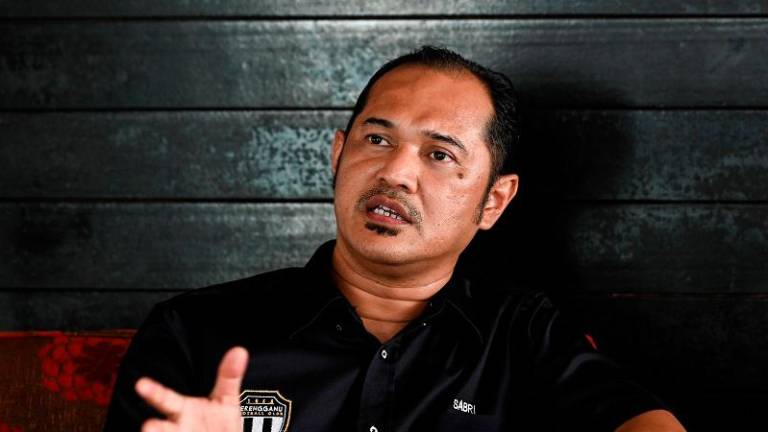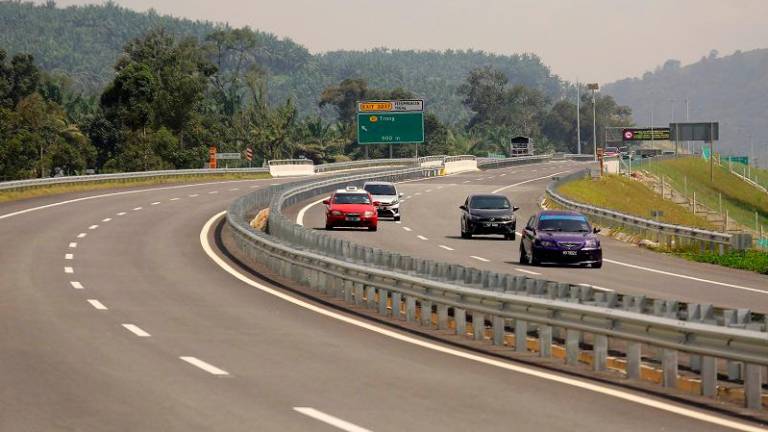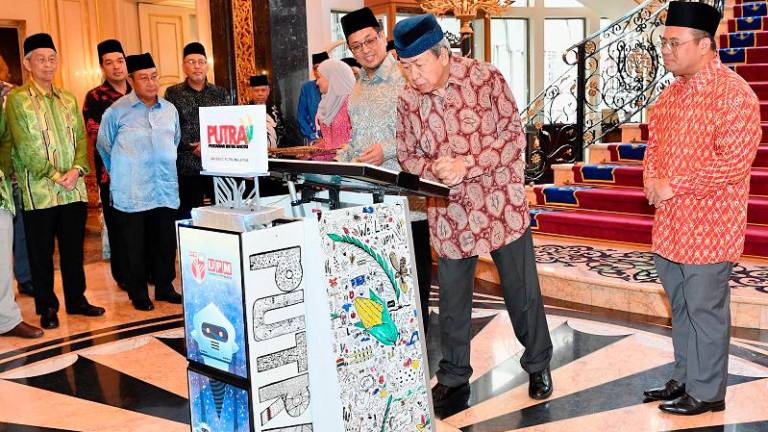UPON my arrival in Pamol, approximately 10km from Kluang on the Mersing Road, I found myself with nothing to worry about.
The manager, RJL Galpine was back from leave. A tall man, he wore shorts, long stockings and a short-sleeved shirt.
I was entrusted with the management of 3,511 acres as the divisional manager, supported by experienced supervisors who kept up the high standards that were set in place.
Left to learn at my own pace in 1968, I engaged with the supervisors, bombarding them with questions.
Mariampillai, the senior conductor, was familiar with every corner of the division. The junior conductor, Arumugasamy, had a voice that could resonate across the valley. However, the workers respected him for his compassionate heart. Despite the occasional scolding, he was known never to dismiss anyone.
The contractors had brought in workers, mainly Chinese girls from their village outside Kluang. Paid on a piece rate, they were focused on their tasks.
Their job was to weed the grass. They only relaxed during the morning break when they removed the sleeves from their arms and the hoods from their faces. During this time, they enjoyed their chatter and sipped drinks from their tin flasks before resuming work.
The most attractive girls were assigned to the team responsible for pollination. It was evident they would do a good job, the same way they took pride in their appearance.
Their task involved walking along the rows of young palms, pollinating each female inflorescence that became receptive. They did this by puffing pollen, ensuring the grains adhered to the stigma, thus guaranteeing successful pollination. Fortunately, supervising this group was not demanding.
Each bunch had around 2,000 fruitlets, initially black and turning red as they ripened, indicating the best time for harvest. The outer layer, or mesocarp, of the fruit, held the crude palm oil. Encased within the shell was the kernel, containing kernel oil.
If left in the field longer, the free fatty acid content would increase, resulting in a decline in the quality of the palm oil by the time the bunch reached the mill.
There, the engineer, Ted Helen, was in charge. He reported solely to the estate manager. His priority was to ensure the prompt arrival of the best bunches while my focus was on delivering all the bunches to achieve the highest tonnage on my record. It became a struggle between the mill and the field.
Assisting him was engineer Quah Ban Poh, who also covered the night shift when required. He was good with machines.
They were supported by the stalwarts of the oil mill, including process supervisors Padmanabhan, Thambirajah and Tan Nam Wah. With their long tenure, they were well-acquainted with every valve and ammeter in the system.
In the mill workshop, foreman Tan Chit Bah provided strong support, swiftly repairing equipment. A man with charming daughters, he was also a natural sportsman who was the champion at tennis and billiards for many years. The staff turnover was low,and the need to seek assistance from Galpine was rare.
Galpine would receive the figures each day, compare them with the estimates, and find no reason to visit me. He was not far from retirement.
He lived alone in a spacious bungalow on the hill. Upon returning home, he would attend to his many tanks of swordtails, guppies and angel fish, which he would feed promptly.
During the school holidays, his children, Simon and Sarah, would fly back, and he would meet them in Singapore, spending a few days at Goodwood Park Hotel.
At the end of their stay on the estate, Galpine would take them back to Singapore, staying a few more days there.
Naturally, I was aware of his absence from the estate, allowing me to carry out my work at my own pace.
In the evenings, I would read about swordtails and angel fish, gaining enough knowledge to hold my own in a discussion.
I also read about the plantation group Unilever. It turned out that it was a big company with factories producing soap and detergents and a variety of food products, including margarine and ice cream under several brands.
Its other plantations were in Nigeria, Cameroon, Congo, Ghana and the Solomon Islands. Arguably the largest plantations group globally, it still constituted less than 3% of Unilever’s total assets.
The chairman of the plantations group, Colin Black, a Scotsman, would visit every two years. With extensive service, nothing escaped his attention.
During his visits, he would stroll through the fields without Galpine to ask questions and establish a closer acquaintance with the heads of the division.
When it was my turn to take him around, I was pleased to find that he was not interested in what I had to explain as he must have reviewed the reports and figures.
Instead, he shared about his trip, first to the Solomon Islands, where coconuts and cocoa were planted. He said on some islands, they also managed cattle.
He would visit the most remote island where an expatriate was based and if the figures were good, they would talk about cricket, until he had to get on the boat again. On the way back he would stop in Australia to watch a cricket match.
During our stroll under the palms, our conversation shifted to books. We delved into the Flashman series, centred around Harry Flashman, a bully from Tom Brown’s Schooldays, originally introduced by Thomas Hughes.
The writer of the Flashman series, George MacDonald Fraser, developed the character of Flashman as a cowardly figure who, despite his initial demeanour, joined the army and engaged in heroic exploits, participating in conquests across virtually every major battle throughout his lifetime.
Flashman’s finest moments were when he panicked or stumbled, yet managed to triumph, with his sword piercing his foe.
Black was surprised to learn I had read all the Flashman books. Upon his return to London, he sent me a hardcover of the latest book, Flashman at the Charge, as promised. I found it helped when you had a common interest with someone at the top.
However, soon I began to feel nervous. Initially, it began with a rumour, and rumours often held some truth, that changes were afoot. Among them was that following the visit, Galpine was on the verge of departure, with a senior divisional manager I had previously worked with, Siva Sankar, poised to take over.
In addition to these changes, a new position called general manager was created to oversee the properties in Kluang and Sabah, and Leslie Davidson from the Sabah plantation was chosen for this role.
I had heard that he was stern, especially with those who were inefficient. He even sacked expatriates, who when they left the group vanished without a trace.
I was afraid a similar fate could befall me.
The writer has extensive experience in the management of oil palm plantations. Comments: letters@thesundaily.com











